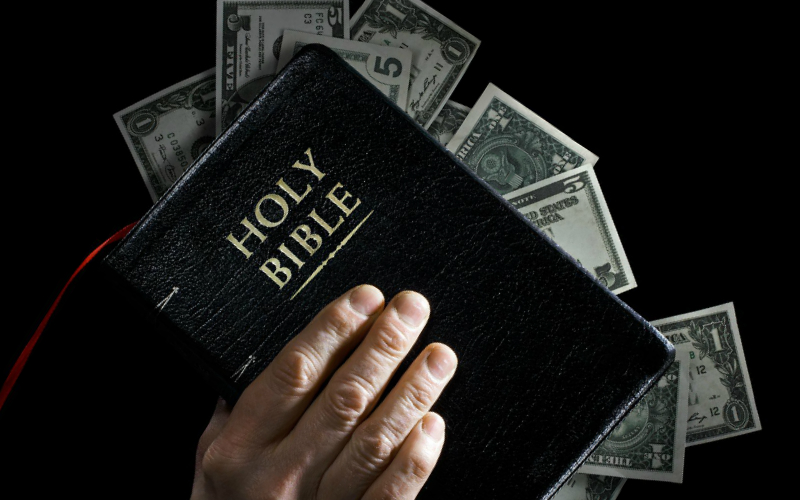A Gallup poll from 2021 shows that as of 2020, only 47% of U.S. adults surveyed belonged to a church, synagogue, or mosque. That was down 20 points from 2000 and marked the first time ever that less than half of the country was churched.

Considering the way many Christian churches operate these days, Shane Morris of The Colson Center says would-be churchgoers know they can get the same messages from Oprah or Dr. Phil -- with the added bonus of not being asked to tithe.
"Part of the message we've been putting across for years now is that Christianity is going to give you what it is you're looking for in kind of a good self-help book," Morris observes.
He thinks the solution to "the great dechurching" is a bit counterintuitive.
"Churches have been asking not too much, but too little from those who darken their doors," the podcast host submits. "We're not saying, 'This is a radical way of life. This is a complete change of your orientation toward basic reality.'"
He says the Church needs to be about God and His Son, Jesus Christ -- not about us.
"The Christian way is to look up first, not in first -- to look at the plan God has for our lives and for the Church instead of trying to … externalize those internal senses of self," explains Morris.
Meanwhile, he sees the positive side to the negative findings: The Church may be going through a purification of sorts.
"Many have made the case that what we've seen over the last few decades has been a sorting of the wheat from the chaff," Morris notes, referencing Matthew 3:12.
In other words, he thinks the survey marks the end of cultural Christianity in favor of a more authentic but smaller core of true believers.
Culture-following churches
A recent survey from the Family Research Council (FRC) reveals that a high percentage of Americans who attend church regularly are not sure that the Bible addresses the topic of transgenderism.
Within the "Survey on Adult Churchgoers on Social Issues and Worldview," participants were asked, "Does the Bible address the question, 'Is transgenderism morally acceptable?'"
According to the poll, 52% of adult churchgoers (defined as someone who attends church at least once a month in person or online) believe the Bible is clear and decisive about the matter. 19% say the Bible is unclear or ambiguous, 20% believe the Bible does not address it, and 9% claim they do not know.

"A full 20% admitted they did not know whether the Bible addressed the question [of] whether transgenderism is morally acceptable," David Closson, director of the FRC's Center for Biblical Worldview, relays. "Of the questions we ask … this was one of the ones that polled the lowest."
He says many churches are downstream from culture instead of the other way around; they wait for an issue to take root in culture before addressing it from the pulpit.
"The Church often follows the culture," Closson reiterates. "I think we've been talking about transgenderism less than, say, issues related to marriage or life."
But the issue is now front and center in culture, and pastors need to address it.
"Rather than following the culture, the Church needs to observe the culture and realize if this is the issue being talked about, we need to provide teaching on Genesis 1 and 2," he says.
Unfortunately, Closson concludes, "There's a lot of catching up that our churches are still doing."














